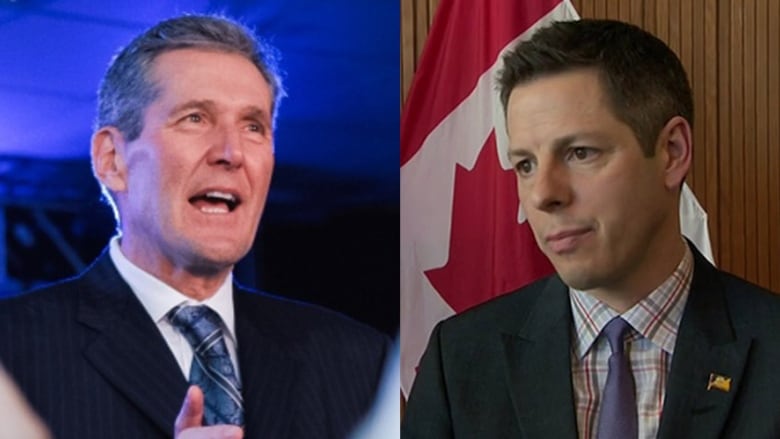4 things Winnipeg wants from Manitoba's budget
Money for roads and emergency services is the prime concern, but the city has other chips on the budget table

As all of Manitoba awaits a provincial budget expected to be austere, Winnipeg's mayor has a message for the governing Progressive Conservatives.
"I won't stand idly by while budgets are balanced on the backs of Winnipeg residents and at the expense of Winnipeg infrastructure," Brian Bowman said Tuesday in an interview, warning the province not to hobble its largest city and economic engine with funding cuts.
"Strong and steady population growth can't be achieved without a strong provincial partner. I'll be looking to see that the existing provincial infrastructure and operating support for Winnipeg continues in the upcoming budget."
It is unlikely Winnipeg will receive everything it wants from Tuesday's provincial budget. It's even less clear what Bowman would do if he's disappointed by the 2017-18 spending plan.
Here are a four areas of interest to the city:
1. Where art thou, Inuit art money?
Shortly after taking office, Brian Pallister's Progressive Conservatives said they were reviewing almost all the funding commitments made by the former NDP government. That included a $15-million provincial pledge to build an Inuit Art Centre at the Winnipeg Art Gallery.
The City of Winnipeg has pledged to spend $5 million on the centre, which intends to showcase more of the WAG's vast collection of Inuit art and also serve as a tourist attraction to complement others in Winnipeg.
When Ottawa announced $15 million worth of its own funding, provincial officials were conspicuously absent.
- Manitoba announces $15M for Inuit Art Centre at Winnipeg Art Gallery
- Feds to contribute $15M to Winnipeg Art Gallery's Inuit Art Centre
Tuesday's budget may reveal the fate of the province's contribution. Whatever decision the Pallister government makes will anger someone.
Honouring the NDP's commitment to spend $15 million on an art gallery would force provincial officials to explain why economic development in Winnipeg is more important than some of the health-care expenditures they've chosen to cancel.

Backing out on the gallery, however, would create yet another irritant in the province's relationship with the Trudeau government. It would also seriously annoy Mayor Bowman, who used to sit on the Winnipeg Art Gallery board and has counted on WAG director and CEO Stephen Borys for political support.
2. Roads, bridges and buildings
While former mayor Glen Murray, his successor Sam Katz and current Mayor Bowman are all very different people, they all sang the same tune when it came to infrastructure funding.
The three Winnipeg mayors all complained it's unfair for the city to shoulder the burden for most of its road repairs, bridge construction tabs and other infrastructure bills, given the city's limited ability to generate revenue and its importance as Manitoba's economic engine.
They also all tried to pry more money out of the Doer, Selinger and Pallister governments, with varying success.
Now, there is a genuine concern the provincial infrastructure funding will flatline or even decline. In February, when PC Families Minister Scott Fielding attended a city road-construction re-announcement, the former city councillor refused to say what the province will spend on city roads this year.
Fielding also refused to confirm the province would match its previous road-construction commitments. His noncommittal response left Bowman, public works chair Marty Morantz (Charleswood-Tuxedo) and St. Boniface Coun. Matt Allard standing awkwardly in silence on a Provencher Boulevard sidewalk.
3. Police, paramedics and firefighters
If infrastructure funding is the city's top priority, money for emergency services is close behind. The city has long looked to the province to help cover the ballooning cost of the the Winnipeg Police Service and Winnipeg Fire-Paramedic Service, which together use up 45 per cent of the city's $1.08-billion operating budget.
The city is especially eager to see the province continue to provide more money for emergency services every year. If Broadway offers the same operating funds as it did in 2016, it will be seen as a cut on Main Street.
4. Taking the mayor for a ride?
When Mayor Brian Bowman said he would do whatever he could to help bring ride-hailing services like Uber or Lyft to Winnipeg, he probably didn't expect that to involve cutting an existing city service to make it happen.

But that's what Winnipeg faces if the Pallister government doesn't fork over the $750,000 it currently spends on the provincial Taxicab Board, which regulates cabs in Winnipeg.
In March, the province tabled a bill to dissolve the board and hand Winnipeg the regulatory responsibility for both taxis and ride-hailing services. Indigenous and Municipal Affairs Minister Eileen Clarke surmised the city could finance the cost of regulation by issuing more licences.
Weeks later, Bowman says he still doesn't know whether money is coming from the province to handle the regulation of vehicles for hire.
The budget may provide some clarity.

